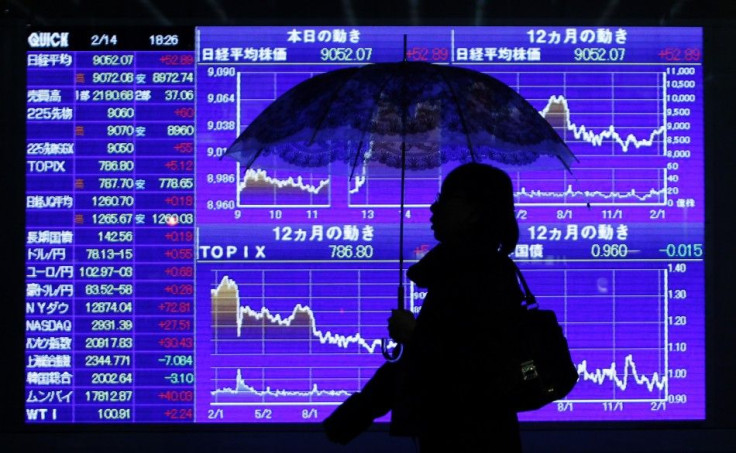Asian Markets Fall Amid JP Morgan Loss, Weak China Data And Euro Zone Concerns

Asian markets fell Friday as concerns surrounding Greece, weak industrial output growth in China and JP Morgan's trading loss dampened sentiments.
Japan's Nikkei Stock Average dropped 0.63 percent or 56.34 points to touch 8953.31, a three-month closing low. Hong Kong's Hang Seng lost 1.22 percent, or 247.05 points, to 19980.23.
South Korea's KOSPI fell 1.43 percent, or 27.80 points, to 1917.13, and the Chinese Shanghai composite index fell 0.63 percent, or 15.08 points, to 2395.15. Indian benchmark BSE Sensex declined 0.90 percent or 148.48 points to 16271.57.
Market sentiment was negative as Greece struggled to form a government after voters rejected further austerity measures. Negotiations between the PASOK and other Greek parties to build a coalition are still under way. As of now, it is not clear whether the party will be able to form a coalition government and avoid another round of elections.
The report from JPMorgan Chase & Co, which said that it had lost $2 billion in a trading hedge strategy that failed, raised the concerns of investors. JPMorgan made the losses on derivatives meant to hedge its credit risk.
Another factor that dragged down the market sentiment was the report that China's industrial output growth slowed in April. According to the National Bureau of Statistics, the industrial production in China rose by 9.3 percent in April from a year earlier, down from 11.9 percent increase in March.
Meanwhile, China's inflation rate slowed in April from a year earlier to 3.4 percent, down from 3.6 percent in March. The diminishing inflation should be good news for the market because it can help the Chinese government invigorate growth without much concern about prices rising. The decrease in inflation has raised hopes that China will cut the cash reserve ratio further.
.
© Copyright IBTimes 2024. All rights reserved.




















